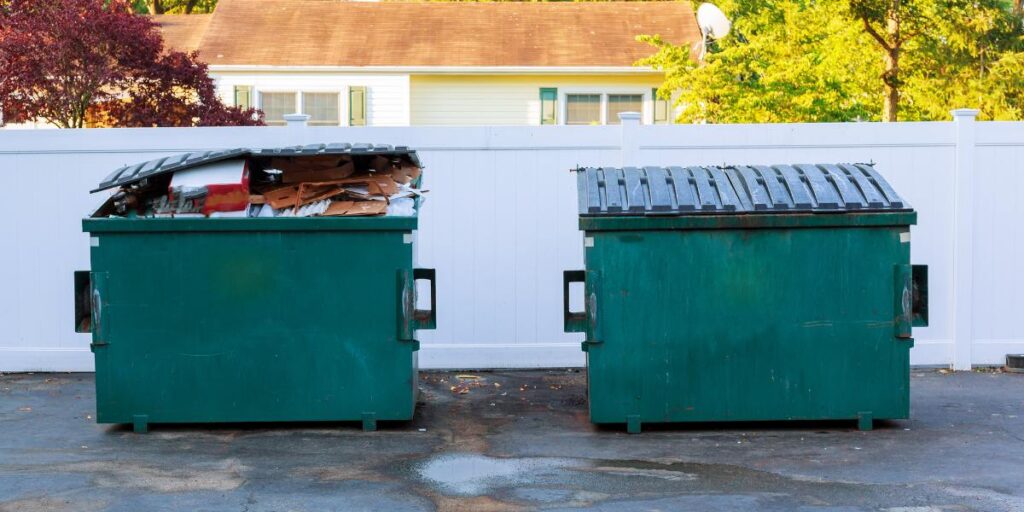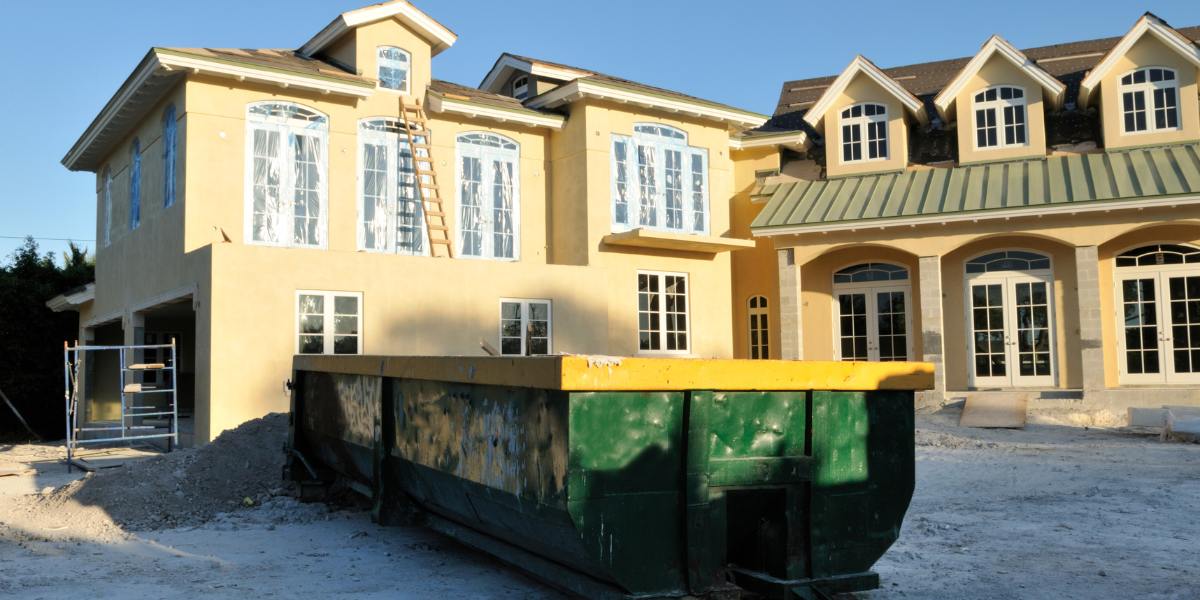Selecting the right dumpster rental company is critical to ensuring your project runs smoothly and cost-effectively.
Whether you’re decluttering your home, managing a construction site, or handling a major renovation, finding the best company goes beyond just price comparisons. It involves evaluating reliability, services offered, customer satisfaction, and environmental responsibility.
This comprehensive guide How to Choose a Dumpster Rental Company will walk you through each step in detail to help you make an informed decision.
Understand Your Project and Waste Type
The first step in choosing a dumpster rental company is understanding the specific requirements of your project. Different projects generate different types of waste, which can affect the type of dumpster you need.
Residential Projects: Home cleanouts, renovations, or moving often produce large amounts of mixed waste, such as furniture, appliances, and household items. A 10 to 20-yard dumpster is often sufficient.
Construction Projects: If you’re working on a construction site, expect heavier debris like concrete, wood, drywall, and metal. Larger dumpsters (30 to 40 cubic yards) may be necessary for such materials.
Yard Waste: Landscaping projects can generate large volumes of organic waste such as branches, leaves, soil, and mulch. Ensure the company allows this type of waste, as some providers have restrictions on organic materials.
Hazardous Waste: For projects involving hazardous materials (e.g., chemicals, asbestos, or medical waste), you’ll need to work
with a specialized company. Be sure to inquire about specific disposal processes and confirm that they follow all relevant safety and environmental guidelines.
By understanding your waste types and volumes, you can ensure the company you choose has the right dumpsters for your needs and avoids potential fines for improper disposal.

Local vs. National Dumpster Rental Companies
When researching rental companies, you’ll likely encounter both local and national options. Each option comes with its own benefits, so the right choice depends on what fits your needs best.
Local Companies: These businesses often provide more personalized service and a deep understanding of local regulations, which can be crucial if you need permits for placing dumpsters on public property.
Local companies also tend to be more flexible with pickup and delivery times. Additionally, they may offer more competitive pricing due to lower overhead costs.
National Companies: Large, national dumpster rental services may have more standardized pricing and broader availability, making them a good option if you need a dumpster in multiple locations or states.
However, their customer service may be less personalized, and there may be delays due to the company’s size and volume of operations.

Licensing, Insurance, and Legal Compliance
It’s vital to choose a dumpster rental company that is fully licensed and insured.
This step ensures that the company adheres to local waste disposal laws and protects you in the event of accidents, property damage, or legal issues.
Renting from an unlicensed provider can result in fines or penalties, especially if your waste is improperly disposed of.
Insurance: The company should carry liability insurance, which protects both the business and the customer in case of damage to your property or injuries sustained during delivery or pickup. Always ask for proof of insurance before committing to a rental company.
Legal Compliance: Dumpster rental companies must comply with federal, state, and local regulations regarding waste disposal.
Verify that the company has the necessary permits to operate in your area, and confirm that they follow proper disposal practices for different types of waste, including recycling and hazardous waste handling. Learn more about what permits are required for dumpster rentals.
Pricing Transparency
When comparing rental companies, cost will undoubtedly be a significant factor.
However, it’s essential to look beyond the initial price quote and ensure there are no hidden fees that could inflate your final bill.
Flat Rate vs. Variable Rate: Some companies offer flat-rate pricing, which includes delivery, pickup, and disposal fees for a set amount of waste.
Others may have variable rates, which charge based on the actual weight of your waste or additional services. While flat rates offer predictability, variable rates may be cheaper if your waste falls below the estimated weight limit.
Overage Fees: Most companies set a weight limit for the dumpster, and exceeding this limit can result in significant overage fees. Make sure you understand these charges before renting, especially if you’re dealing with heavy materials like construction debris.
Delivery and Pickup Charges: Some companies charge additional fees for expedited delivery, same-day pickup, or weekend services. Clarify these charges upfront to avoid surprises later.
Permit Fees: If your dumpster needs to be placed on a public street or sidewalk, you may need a permit. Some companies include the cost of obtaining this permit in their pricing, while others require you to handle it yourself.
Waste Disposal and Environmental Practices
Responsible waste disposal is an essential consideration when choosing a dumpster rental company. The provider you select should prioritize environmentally friendly disposal methods, such as recycling and safe handling of hazardous materials. Ask the company about their approach to:
Recycling: Companies that actively separate recyclables like metal, plastic, and cardboard reduce the amount of waste sent to landfills. Some providers may even offer discounts for renting a dumpster primarily for recyclable materials.
Eco-friendly Practices: Many companies are taking steps to reduce their environmental impact by partnering with recycling facilities or donating usable items to local charities. If you care about sustainability, be sure to ask about these practices.
Proper Waste Segregation: Different types of waste require different disposal methods. Choose a company that adheres to local regulations regarding the segregation of hazardous materials, electronics, and recyclable waste.

Flexibility in Scheduling
The flexibility to schedule delivery and pickup according to your needs is crucial. You don’t want a dumpster arriving too early or being picked up too late, especially if you’re working on a tight project timeline.
Delivery Times: Ask how quickly the company can deliver the dumpster once your order is confirmed. Some providers offer same-day delivery, while others may require 24 to 48 hours’ notice.
Pickup Times: It’s important to know how soon the company will pick up the dumpster once your rental period is over. Some companies allow you to schedule a specific pickup date, while others will retrieve the dumpster automatically after a set number of days. Verify whether there are fees for extending your rental period if needed.

Customer Service and Support
Customer service can make a big difference in your overall experience with a dumpster rental company. For exceptional support, check our Junk Removal Services.
When choosing a rental company, it’s important to find one that is easy to reach, responsive to your inquiries, and flexible with changes to your rental duration or dumpster size. Here are some key factors to keep in mind:
Availability: Does the company provide 24/7 customer support? This can be crucial if you encounter an issue outside of normal business hours.
Clear Communication: The company should clearly outline all terms, including pricing, weight limits, and waste restrictions. Stay away from companies that are vague or seem hesitant to answer your questions.
Professionalism: Check customer reviews to assess the professionalism and courtesy of the staff. Are they punctual with deliveries and pickups? Do they handle questions and concerns in a respectful manner?

Online Reviews and Reputation
Checking online reviews is a great way to gauge a company’s reputation.
Look for consistent themes in the feedback, such as complaints about hidden fees, missed pickups, or poor customer service.
Conversely, pay attention to positive reviews about companies that are punctual, responsive, and offer transparent pricing.
Review Platforms: Search for reviews on Google, Yelp, the Better Business Bureau, and industry-specific sites. Also, consider checking social media for more current feedback from customers.
Complaints: Red flags include repeated complaints about unexpected charges, slow pickups, or damage to customers’ property. While no company is perfect, a pattern of negative reviews is a good reason to look elsewhere.

FAQs: How to Choose a Dumpster Rental Company
What size dumpster do I need for my project?
The size of the dumpster you need depends on the type and volume of waste generated by your project. For small home cleanouts or renovations, a 10 to 20-yard dumpster may be sufficient. Larger projects, like construction or significant renovations, may require 30 to 40-yard dumpsters.
Consider the weight and type of materials you’ll be disposing of, and consult with the rental company for recommendations based on your specific needs.
How much does it typically cost to rent a dumpster?
The cost of renting a dumpster varies based on factors such as size, rental duration, and location. On average, you can expect to pay between $300 and $800 for a week-long rental. Be sure to ask about any potential additional fees, such as charges for exceeding weight limits, extra days, or special waste types.
Are there restrictions on what I can put in a dumpster?
Yes, dumpster rental companies often have restrictions on certain materials. Commonly prohibited items include hazardous waste (like chemicals or batteries), electronics, tires, and appliances with refrigerants.
Always check with the rental company for a comprehensive list of prohibited items to avoid additional fees or legal issues.
How long can I keep the dumpster?
Most dumpster rental companies offer standard rental periods ranging from 7 to 14 days.
If you need the dumpster for a longer period, ask about extension options and any associated fees. Make sure to communicate your timeline with the rental company to ensure it fits within their scheduling capabilities.
Do I need a permit to place a dumpster on the street?
In many areas, you may need a permit to place a dumpster on public property, such as a street or sidewalk.
The requirements can vary by location, so it’s essential to check with your local government or the rental company for guidance. Some dumpster rental companies will help you secure the necessary permits.
How do I know if a dumpster rental company is reputable?
To determine if a dumpster rental company is reputable, look for online reviews and ratings on platforms like Google, Yelp, or the Better Business Bureau.
Pay attention to customer feedback regarding pricing transparency, reliability, and customer service. A strong track record of positive reviews and a transparent pricing structure are good indicators of a trustworthy provider.
Conclusion
Selecting the right dumpster rental company involves a combination of research, careful planning, and attention to detail.
By evaluating your project’s waste needs, exploring local providers, confirming their licenses, understanding their pricing, and reading customer reviews, you can find a company that suits your requirements and offers reliable service.
Take your time with the decision-making process—thoroughly reviewing your options will help you avoid future complications and keep your project running smoothly.
For more insights on effective waste management, explore our tips on renting dumpsters or learn about the hidden fees in dumpster rentals.
If you Need a dumpster rental? Click here for hassle-free service, available 24/7!
